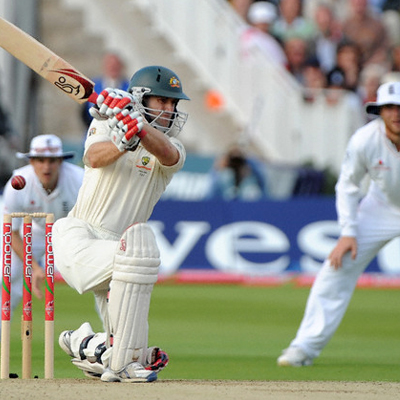Big Data: the game-changer in the business of sport
Big Sports and Big Data are forging a partnership that is forever changing the future of sport.

Across South Africa and the continent, sport has become far more than just a game: it's big business. As savvy team owners have realized, technology can give them a vital edge - both on the field and off it. Big Sports and Big Data are forging a partnership that is forever changing the future of sport.
The bottom line is that for sports teams and franchises to thrive, they have to think like businesses. Like any business, they have to manage their resources effectively, which means focusing on winning, serving and retaining customers. Many teams across the continent have been doing this years, but today the power to contextualize sports data and develop unique insights is turning sports on its head.
In fact, said SAP's Pfungwa Serima, the future of sport is being shaped by the same trends that are converging and driving massive business transformation across all industries: mobile, cloud, social and big "The future of sport can be seen in the same context as the future of all business in Africa. It's about effectively using data-gathering and mobile technology, coupled with powerful tools for analysing data to predict the future," commented Serima. "Sport is a people business. The opportunity is to intelligently leverage technology to further engage with people and enhance fans' game day engagement with their favourite teams on a consumer level, particularly for the increasingly-digital millennial generation."
The opportunities are immense and immediate, added Serima. By putting real-time information in the hands of administrators, players, coaches, the media and fans alike, teams are able to improve their on-field performance, increase business efficiencies and provide a far richer fan experience.
A case in point is the ICC Cricket World Cup 2015 having recently been played in Australia and New Zealand. All the data, statistics and performance analysis on the official ICC Match Center website – along with all other online, apps and social platforms – were delivered using SAP technology. In addition, the ICC Match Center used ball-by-ball match data, with full Hawk-Eye camera integration to provide unique real time insight to fans. A sport like sailing is also finding the technology a boon. SAP's sponsorship of the 60th 505 World Championships in Port Elizabeth also recently saw seeing sailors, team coaches, fans and commentators able to access trends, weather patterns, 2D and 3D race analytics and current and historical analyses.
Serima believes African sports franchises have a major opportunity to better use technology to enhance the fan experience in their homes and as live spectators in stadiums. Apart from the ability to stream real-time statistics and information to fans during the game, he cites examples of sports teams in the US that are looking at ways of creating "smart stadiums" that can use mobile applications for check-in, showing people to their seats, indicate the shortest bathroom lines, help them buy refreshments, and even offer seat upgrade options.
Indeed, Serima sees sport as an important metaphor to sell the benefits of real-time analytics to small and medium-sized businesses in Africa and across the continent. "For us at SAP, sports teams are a lot like SME owners in Africa. They've been successful in the past going with their gut, and are sometimes wary of investing in new technologies like analytics. But like SMEs, the sports industry is a business, which has the opportunity to use technology to produce the best possible teams and the best possible results," he said.
"The big advantage sports teams have over other businesses is that if they get the customer experience right, those customers become fans: they paint their faces and wear the team's branding for free. That's a powerful endorsement of any business."